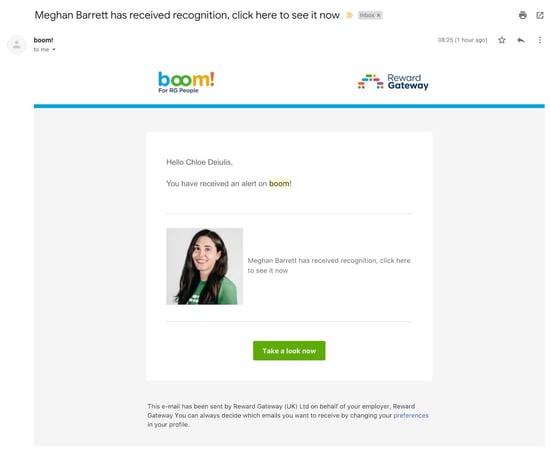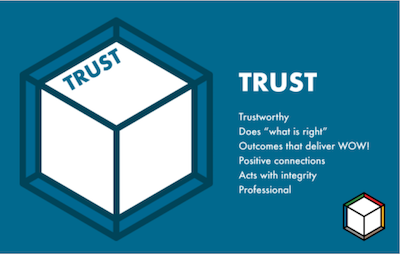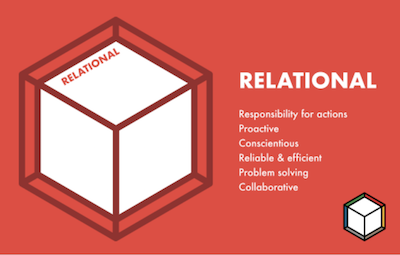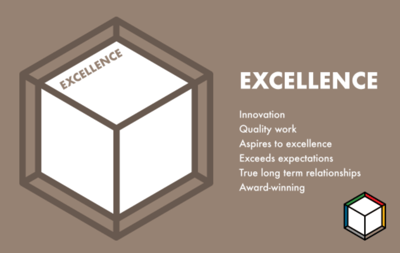Most managers would agree that organisational culture is critical when it comes to keeping employees motivated and engaged – but how many really have it on their agenda? If your organisation struggles to get your managers on board and accountable when it comes to engagement, particular recognition, you're not alone. A global study by PWC shows that a huge 80% (yep, 4 out of every 5!) of employees believe their company culture needs to change in order for them succeed, grow, and retain the best people.
This highlights the importance of giving managers the strategies and tools to help them improve culture, and what better place to start than recognising the people in their teams.

Even nice managers experience high turnover
I’ve known what it’s like to work with a manager whose style was purely performance-based. Even though my manager treated me with respect and did spend time and money on team outings and end-of-year gifts, most of the time I felt detached from my work (and workplace). Everyone around me was so focused on the bottom line they couldn’t see the bigger picture or the side of our colleagues that included health and wellbeing, work-life balance, personal relationships, and what really interested or motivated us to go above and beyond.
At this organisation, employees stayed in the same position for years because promotions were few and far between. They did not have the support or infrastructure from their managers for career development, and managers lacked the compassion their employees craved in and outside of the office. Its leaders hadn't connected the dots between their consistently rigid behaviour and the consistently high rate of turnover.
They thought that if they brought snacks to meetings and organised more happy hours, it would solve the problem.
Some employee benefits are a nice-to-have in the office and can help employees feel appreciated in the moment, but chocolate biscuits and Friday drinks aren't going to help bridge the employee engagement gap alone. Employees still had to drag themselves in (on time of course) the next day to work for a boss that did not create the environment where they felt appreciated, respected, or supported.
So how do employees actually want to be recognised in their work environment and how can you encourage managers to reinforce the positive behaviour?

Focussing on what employees crave in the workplace
As author Gregg Lederman discusses in his book “CRAVE: You Can Enhance Employee Motivation in 10 Minutes by Friday™,” in order to improve employee motivation employers must give employees the three things they crave in the workplace.
|
The three things employees crave in the workplace: |
|
Respect: Help me feel respected for the work I do. |
|
Purpose: Show me how what I do has purpose, makes a difference, and is relevant to the organisation. |
|
Relationships: Help me build stronger connections with people, especially my immediate manager/supervisor. |
When managers set aside 10 minutes each week to recognise employees for desirable behaviour, employees get what they crave.
That then leads to improved employee engagement, work culture and customer experiences. And this ultimately leads to your organisation’s ability to achieve its desired business results – along with attracting and retaining top talent.
.jpg?width=500&name=Cat%20Lewis%20-%20Robert%20Hicks-4%20(1).jpg)
Focussing on meaningful, strategic recognition
Managers need to have the tools and mindset to utilise recognition strategically to influence the culture and improve employee engagement. To truly improve employee retention in an organisation, your people need to feel valued, connected to your purpose, mission and values, and feel like their work is being recognised.
But rather than simply checking a box, employee recognition should be done the right way – where it’s meaningful and strategic. Managers should lead the way when it comes to how they interact with the organisation’s platforms (like an employee engagement platform) and set the example for how strategic recognition should be done.
Here are five ways you can help get managers on board:
1. Let employees decide how they prefer to be recognised and respect that
While some employees appreciate their contribution being acknowledged in front of a broader audience, not everyone wants their name up in lights. Some people find being put in the spotlight at a team or company meeting embarrassing, so that type of public recognition can be distracting or at worst, demotivating. So what’s a manager to do? Work with what your team needs, of course. Understand that someone might prefer a private email of acknowledgement while their colleague wants to have their name mentioned during a team meeting.
The best way to know what will be the most motivating for your team is to simply ask them, and to spend time getting to know the methods of feedback that are most effective for them.
2. Provide recognition for different occasions
Instead of waiting for monthly or annual awards (that often only recognise 5% of your organisation anyway), provide ways to both privately and publicly recognise the daily achievements of individuals within your team. Whether it’s an eCard that you send whenever someone demonstrates a value, or it’s a seasonal award that’s available for certain times in the year – remind your managers that feedback and recognition are things that people need regularly, and something they need to build into how they operate and communicate with their team.
3. Give managers an edge
While continuous peer-to-peer recognition is important for creating a great culture from the ground up, never underestimate the value of recognition that comes from the person you report to. Giving managers the ability to give specific eCards or awards at their discretion gives them a powerful tool in their management arsenal, and helps them and employees more easily distinguish between good and great work.
Create guidelines and suggestions, and educate managers about how and when to use these specific awards. Don’t worry about overuse unless it actually becomes an issue!
We know life for leaders is busy, so we've make it really easy for managers to remember to recognise by switching on manager alerts in our employee recognition and reward platform.

Managers receive gentle reminders whenever it's a direct report's work anniversary and birthday, or if they haven't sent any recognition that week. Best of all, they get an alerts whenever someone in their team is recognised by someone else in the business – so they get visibility of the people they're impacting. The alerts are designed to help make busy managers' lives easier, and to help them nurture a culture of continuous recognition in their organisations.
4. Encourage feedback from managers and share that with the rest of your leaders
If you’re still struggling to get managers participating in your recognition program, then reach out and find out what it is that they find challenging.
One of our clients did this when they were refreshing their recognition program and found that most of them were nervous that what they were writing in their eCards would be “wrong.” To help address this, the company redesigned the eCards to improve employee recognition messages, by including words and examples of the different behaviours that employees could use to help them write their recognition.



The number of eCards and award nominations increased as soon as they launched the new designs, and the HR team would share those numbers at the weekly leadership meeting, showing which teams and individuals were most active in the program. This helped create a sense of excitement and accountability, which continues to improve participation across the company.
5. Remind managers that recognition – and reward – can take on different forms
As we’ve seen with the manager/employee gap, many managers think they’re recognising employees regularly but employees don’t agree.
There’s no cookie-cutter approach, so the recognition or reward that works for one employee isn’t necessarily going to work for another.
Provide your managers with ideas of low-cost ways they can recognise or reward their employees that are outside the box – sometimes being asked to be involved in a project that will help them develop skills they’ve expressed interest in, or giving them a day off after working long hours to get a project over the line are going to be more effective options than waiting months to nominate them for an annual award.
While there’s no magic wand, these tips can help make recognition front-of-mind for managers who aren’t used to recognising their people. If you have more tips, I’d love to hear from you!
 Kameel Martin
Kameel Martin

